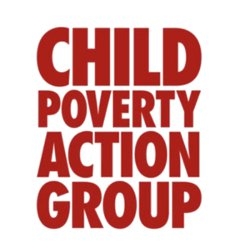
Child Poverty Action Group (CPAG) supports the call by Dr Sarah Donovan, from the University of Otago’s, Department of Public Health, to improve access to sanitary hygiene items by removing the cost barrier, because it signifies a much wider problem being faced by many children and young people in New Zealand.
Access to basic necessities is proving to be more and more difficult for children in New Zealand, with charities coming to the rescue – but only the few who fulfil the right criteria or attend a school serving a low-income community are able to make use of this generosity. Many others, who may attend a higher decile school or do not meet the right criteria for other financial assistance, will miss out.
“It’s great that there are charities like KidsCan helping out, and the funding they receive from the Ministry of Social Development is sure recognition of a much greater problem,” says Janfrie Wakim, Co-convenor of CPAG.
“But delivering assistance in this matter has other consequences. For example, the stigma attached to poverty means that children who need to take up the help, may be singled out or feel ashamed of their social disadvantage, compared with their more economically advantaged peers.
“They may feel embarrassed, and suffer from reduced self-esteem. Adolescence is hard enough without added anxieties coming from having inadequate income to cover essentials such as sanitary pads.”
“What we provide for one child, we must be able to do for all – a better way of addressing this problem is needed,” says Wakim. “If we have recognised that some girls are absent from school due to being unable to afford sanitary items – the problem goes far beyond helping out at the school office.”
“Furthermore, some needy children attending schools that do not receive the charitable support miss out.”
Kelston Girls’ College, a decile 2 school in Auckland has a solution: a fully-funded medical centre which offers a complete service to all students, irrespective of their family incomes. Sanitary products are made available to all the young women at all times, removing stigma and cause for anxiety. They can see a GP without charge too.
Linda Fox, the school’s principal, has been pivotal in ensuring all her students’ needs are met, and says that their system allows the girls the autonomy to care for themselves well. For students at Kelston Girls’, the service is invaluable – they have the security of knowing their needs will be met.
On sanitary items, which are provided freely, she says, for many children the barrier is simply cost. “They’re just too expensive. And they should be made cheaper generally.”
Dr Nikki Turner, CPAG health spokesperson, says, “On a low-income basis essential items such as sanitary pads are very difficult for families with adolescent girls.
“Think of a family experiencing hardship, and there are three menstruating teenagers, in the household – this is not an uncommon scenario – such items, though essential, are costly and strain an already meagre budget.
“If the cost to charities can be $1 per pack based on bulk buying, then the high-cost has to do with the profit margins on regular,single purchases. Quite simply the items are too expensive, and family incomes are too low.
CPAG asks for sanitary product manufacturers to reduce their profit margins for single purchases in order to be socially responsible, and for the Government to ensure that all families have their income needs met. For many, extending the $72.50 of the Working for Families In-Work Tax Credit to all children irrespective of their parents’ hours of work, would provide huge and immediate relief.
Budget 2017 spelled improvements for many of the worst-off families – but not until next year. There is still a long way to go before all New Zealand children are treated fairly and indiscriminately, says CPAG.




